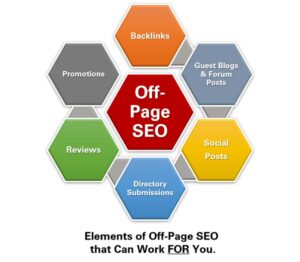
Using SEO to Organically Grow Your Online Leads
Previous RCG Contractor blogs have covered several basic guidelines about gaining website traction through Search Engine Marketing (SEM). But what about Search Engine Optimization (SEO)? Why is building up SEO a “must” when it comes to successfully improving website rank?
When you build up your SEO, this helps improve the overall quality of your website. The more content you can provide that is relevant to your business, the better your overall organic search ranking will be. This also helps supplement and improve the impact of your paid search program.
SEO is constantly evolving, but let’s look at two of the more important facets that you can implement easily into your website to work alongside your SEM strategies.
On-Page SEO
First, this is the most commonly recognized part of building SEO effectiveness. It also often seems to be the hardest to maintain and update- and can be the most time consuming. There are three primary components to managing on-page SEO:
Content – Give the People What They’re Searching For
Content is the number one ranking factor with Google. Creating high-quality content developed around what potential customers are searching for is what makes your website relevant in search results.
Focusing your content around topics or keywords that surround your business gives search engines a better idea on how you match with a search query.
A few of the easiest content pieces you can develop on your website are blogs and longer service descriptions on your main pages. Writing case studies or applying customer reviews to your site are two additional valuable content resources.
Keyword Optimization and Relevance – Making Sure Your Content is On Point
Marketing strategies for SEM often focus on the costs involved with bidding on specific keywords for PPC SEM campaigns. Developing relevant keywords in SEO content works together with SEM on keyword bids. If you’re currently bidding on a keyword that isn’t found in your site content, this will negatively impact your SEM results and organic website search results.
Because SEO can work as a stand-alone resource for search results, make sure keywords used in your content center around your products or services.
Describing how to lay sod, install foundation piers or write about the benefits of steel soffits on a home may not be glamorous, but it will help you stand out when it comes to SEO.
Likewise, make sure that you’re thinking about your potential customer and how they may describe your services or product. Tie this into your keyword development in your content. Consider also including location terms such as the city or regions you serve. Service areas have become extremely important when targeting search result relevance.
Technical SEO- Encompassing Your Website Build into SEO Performance
Technical SEO can be broad enough topic for its own blog. For now, we’ll focus on just a few of the top technical factors that are important to consider when creating or updating a website.
Site speed – How long does it take to load your website? A slow-loading website bogged down by heavy images or video is not only frustrating for the consumer, but can also hurt your website rank.
Mobile Friendly – Over half of all online searches are done through mobile devices. Having a mobile friendly website gives you a user-friendly advantage. Plus, it will help you index better on search engines. Google’s algorithms also give heavier preference to sites that are optimized for mobile viewing.
Indexing and “Crawlability”– Out of thousands of results, how many times does your website and website build contain the keywords that were searched? Keywords embedded in graphics or video don’t index, so make sure your site contains high quality content in text.
Site Builds (Site Architecture) – Broken links or empty pages with little to no content can hurt your SEO relevance. Furthermore, making sure you have titles and meta tags within your site and images helps build a cohesive picture for Indexing and Crawlability.
Off-Page SEO
The easiest way of putting SEO to work for you is by utilizing off-page SEO. Once your content and on-page SEO is up and running, off-page SEO can generate website traffic and search results from outside sources. The best way to approach off-page SEO is to think of all the promotional methods happening off your site. Here are some of the most powerful off-page tactics:
Backlinks- Making Footnotes to your Content
Creating backlinks (or a reference link) is one of the key factors is making sure your content is relevant to the keyword topic. A backlink is a link to an external resource. For example, a radon mitigation company might link to the local health department’s radon level testing results.
External links convey a trust-worthiness around your content and provide value to your SEO. Think of it as citing a source for an article- or providing a footnote of authority. In turn, if your company is being mentioned on any outside website that is considered high-quality content, it can help your SEO to ask for that source to backlink to your website.
It’s ultimately a brand boosting exchange for both parties, and gives you several additional ways to be visible beyond search engines.
Social Media & Influencer Posts- Working Smarter, not Harder
Believe it or not, having influencers talk about your business, or generating social media posts that link to your website, are considered part of the SEO build. Not sure if an influencer is right for you? Think about how your customer reviews or recommendations made online can nurture your reputation and SEO.
Industry Contributions- Be the Expert
Taking the time to network and provide content for others, can feed into your SEO. If you position yourself in the community as an expert in your field, contributing your know-how as either a guest author or providing content to others as a source, can boost your SEO.
By combining on- and off-page SEO tactics, you can improve your website’s position in organic searches and help your paid SEM efforts work more effectively.
The final important thing to remember SEO is that it should be a constantly ongoing process. Because fresh content is important and search engines are constantly tweaking the way they index websites, your SEO work is never done. By making a regular investment in SEO, you can build your site’s value and your business.





